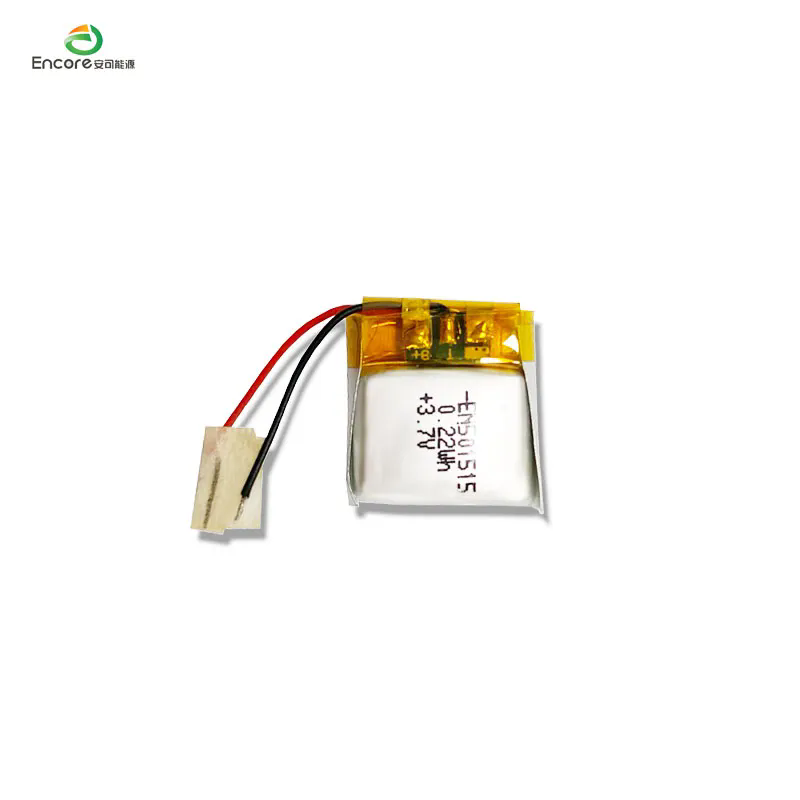Li Polymer Prismatic Battery: A Comprehensive Guide to Modern Energy Storage
2024-08-07
Li Polymer Prismatic Batteries are a type of lithium-ion battery that combines the benefits of lithium-ion technology with a unique prismatic form factor. These batteries are renowned for their versatility, lightweight design, and efficient energy storage capabilities, making them a popular choice in various applications ranging from consumer electronics to automotive and renewable energy systems. In this blog, we'll explore the features, benefits, and applications of Li Polymer Prismatic Batteries.
1. What is a Li Polymer Prismatic Battery?
A Li Polymer Prismatic Battery, often abbreviated as LiPo or Lipo battery, is a rechargeable battery that uses lithium polymer (LiPo) technology in a prismatic (rectangular) cell format. Unlike traditional cylindrical or coin cell lithium-ion batteries, the prismatic design allows for a more compact and customizable shape, making it ideal for a wide range of applications.
Key Components:
- Lithium Polymer Electrolyte: A solid or gel-like polymer electrolyte that enables the movement of lithium ions between the positive and negative electrodes.
- Positive Electrode (Cathode): Typically made from lithium cobalt oxide (LiCoO2) or other lithium compounds.
- Negative Electrode (Anode): Usually composed of graphite or other carbon-based materials.
- Protective Circuitry: Integrated circuits that manage battery charging and discharging, ensuring safety and prolonging battery life.
2. Features of Li Polymer Prismatic Batteries
- Prismatic Shape: The rectangular or flat shape of prismatic LiPo batteries allows for efficient use of space, making them suitable for applications where space constraints are a concern.
- Lightweight and Thin: LiPo batteries are known for their lightweight and slim profile, which helps reduce the overall weight and size of devices.
- High Energy Density: LiPo batteries offer high energy density, meaning they can store a significant amount of energy relative to their size and weight.
- Customizable Form Factor: The prismatic design allows for custom shapes and sizes, accommodating different design requirements and improving flexibility in product design.
- Improved Safety: LiPo batteries are generally considered safer than traditional lithium-ion batteries due to their stable electrolyte and improved construction.
3. Benefits of Li Polymer Prismatic Batteries
- Space Efficiency: The prismatic shape makes it easier to fit the battery into compact or irregularly shaped devices, optimizing space utilization.
- Lightweight Design: The lightweight nature of LiPo batteries makes them ideal for portable electronic devices, reducing the overall weight and enhancing user convenience.
- Flexible Design: The ability to customize the shape and size of prismatic LiPo batteries allows for innovative product designs and integration into various applications.
- Long Cycle Life: LiPo batteries typically have a long cycle life, meaning they can be charged and discharged many times before their capacity significantly degrades.
- Fast Charge and Discharge Rates: LiPo batteries can support fast charging and discharging rates, making them suitable for high-performance applications.
- Low Self-Discharge Rate: These batteries have a low self-discharge rate, which helps them retain their charge over extended periods of inactivity.
4. Applications of Li Polymer Prismatic Batteries
- Consumer Electronics: Used in devices such as smartphones, tablets, laptops, and wearable technology, where space and weight constraints are significant considerations.
- Drones and RC Vehicles: LiPo batteries are commonly used in drones, remote-controlled cars, and other hobbyist electronics due to their high energy density and lightweight design.
- Electric Vehicles (EVs): In electric vehicles, LiPo batteries can provide a compact and efficient energy storage solution, contributing to overall vehicle performance and range.
- Renewable Energy Systems: LiPo batteries can be used in solar energy storage systems and other renewable energy applications, where their efficiency and space-saving design are advantageous.
- Medical Devices: Used in medical equipment and portable health monitoring devices, where reliable and compact energy storage is critical.
- Power Tools: In power tools and other battery-operated equipment, LiPo batteries offer high energy density and durability for extended use.
5. Considerations for Li Polymer Prismatic Batteries
- Safety: While LiPo batteries are generally safe, it’s important to handle them properly to avoid risks such as swelling, leakage, or thermal runaway. Always follow manufacturer guidelines for charging and discharging.
- Temperature Sensitivity: LiPo batteries can be sensitive to temperature extremes. Operating within the recommended temperature range is crucial to maintain performance and longevity.
- Proper Charging: Use a compatible charger specifically designed for LiPo batteries to ensure safe and efficient charging.
- Storage: Store LiPo batteries in a cool, dry place and avoid exposing them to extreme temperatures or physical damage.
- Recycling: Properly recycle LiPo batteries at designated recycling facilities to minimize environmental impact and comply with local regulations.
Conclusion
Li Polymer Prismatic Batteries represent a significant advancement in energy storage technology, offering a combination of high energy density, lightweight design, and customizable form factors. Their versatility makes them suitable for a wide range of applications, from consumer electronics to electric vehicles and renewable energy systems. By understanding their features, benefits, and considerations, users can make informed decisions and leverage the advantages of LiPo batteries for their specific needs. As technology continues to evolve, LiPo batteries will likely play an increasingly important role in powering the next generation of innovative products and applications.



